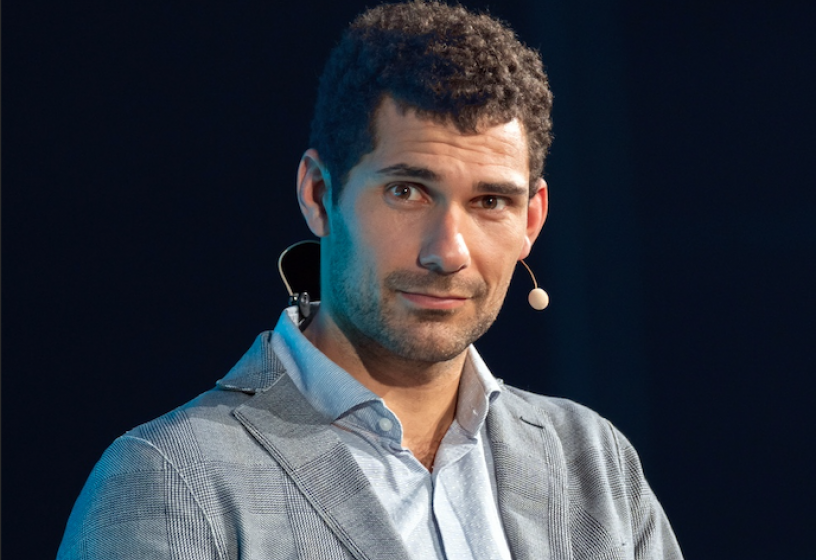Interview with Elisabeth Margue
Making AI A Tool For The Common Good: Balancing Innovation With Responsibility

How is the Luxembourg government adapting to the rapid pace of AI advancement?
Together with my team and other key ministries, we have established the Interministerial Committee for Digital Policies to oversee the agenda for Luxembourg Digital Decade and to draft the new national artificial intelligence strategy for 2030. The committee, designed to foster collaboration among all stakeholders and coordinate actions by clarifying responsibilities, will provide an overview of the current landscape in order to set out a new direction. Our strategy aims to position Luxembourg as a leader in cutting-edge technologies, ensuring that AI drives both societal progress and business growth, while adhering to ethical standards and generating sustainable value.
Although the AI 2030 strategy is set for release in spring 2025, several significant projects have already been launched, such as "AI for Gouv", which aims to integrate AI into public administrations, to name just one.
What are the key elements in your strategic thinking?
To succeed in AI domain, several factors are essential: robust infrastructure to ensure connectivity and computing power, effective data management with a clear governance framework, and, crucially, skills development, both for experts and for the wider population. Luxembourg is relatively well positioned in terms of technology, particularly thanks to its Meluxina supercomputer, and can leverage its expertise in transition-ready sectors, such as finance. However, there is still considerable progress to be made in these three key areas.
When it comes to AI skills in particular, Luxembourg is said to be lagging behind, according to the Tortoise Global AI Index. Meanwhile, a study by Implement Consulting Group forecasts that 72% of professions will need to evolve due to AI assistance. What steps are necessary to prepare the country’s workforce for this transformation?
These figures are consistent with those in the European State of the Digital Decade report. While Luxembourg is home to excellent experts, there is a clear need to strengthen general AI skills. To address this challenge, Luxembourg is adopting a comprehensive approach to bridge this gap, which includes educational reforms, professional development programmes, and strategic initiatives to attract and retain the best talents. The goal is to ensure that our workforce and industrial sectors are fully equipped to take the lead in a future where AI is at the forefront. However, the role of technology must be clearly defined, emphasising that it should alleviate repetitive tasks without replacing humans.
At the same time, we are implementing policies to raise public awareness of AI. Projects like "Elements of AI", which aimed to teach the basics of AI to 1% of the population, have been very successful and will continue to be implemented. I believe there are two main priorities here: making AI accessible to everyone and encouraging the use of this technology so that people can understand its potential and learn how to use it savvily.
The government wants to encourage businesses, particularly SMEs, to harness the benefits of AI. How do you view this potential?
AI presents a tremendous opportunity for businesses that can integrate it into their everyday operations. We want to avoid focusing exclusively on the pure tech players, as this would overlook the SMEs that are at the heart of real value creation in our economy. Enhancing operational efficiency, adopting more environmentally sustainable business models, and improving decision- making through advanced analytics are all avenues that can already be explored on a smaller scale, with the potential for significant long-term impact.
Will Luxembourg’s economic ecosystem benefit from the rapid implementation of the AI Act?
Thanks to its vibrant and dynamic economic ecosystem, Luxembourg is a frontrunner in terms of digitalisation. Our country is also among the first to have tabled a bill aimed at implementing certain provisions of the AI Act. This bill designates the authorities responsible for overseeing the regulation's application. These authorities are already working closely with the relevant ministries as part of the European AI Board’s efforts to ensure a cohesive national approach and provide optimal support for AI adoption. The European regulatory framework ensures the responsible use of AI, safeguarding individual rights while fostering innovation. It takes a risk-based approach, regulating only a limited number of use cases, and offers businesses the legal security needed to innovate with confidence.
How do you see Luxembourg in 10 years’ time with AI? What is your ambition?
Our ambition is to make Luxembourg one of the most innovative countries in the field of AI, by developing a ‘Smart Nation’ capable of harnessing AI intelligently to improve the efficiency of both business and government operations. We are committed to making AI a tool for the common good, balancing innovation with responsibility. This involves investing in digital skills and applied AI to prepare everyone’s future.
Also to read in the dossier ''AI, Encouraging Techno-Awareness'':



